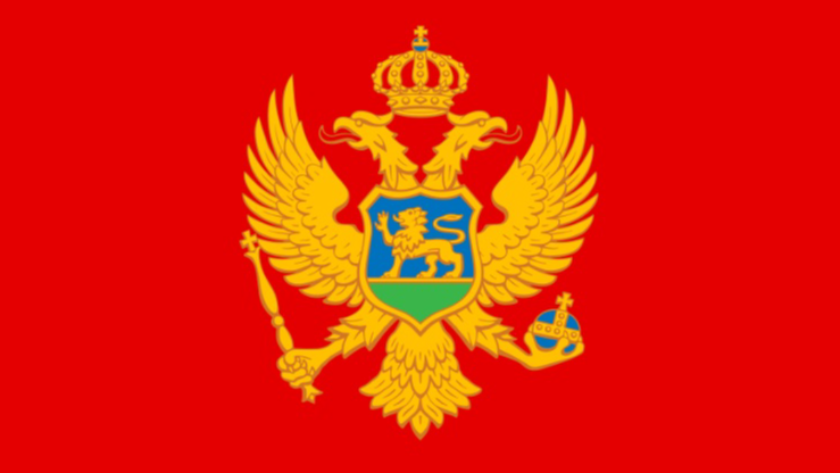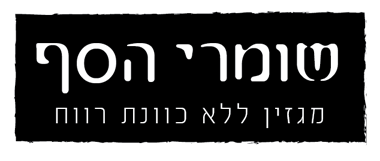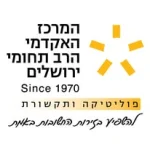The Dynamics of National Identity in Modern Montenegro: The Tension Between Religious Tradition, Ethnic Belonging, and State Patriotism
- 11 במרץ 2025
- 0

The young state of Montenegro stands at a crossroads of identities, history, and culture. Amid the Balkan Mountains, a quiet drama unfolds for the people navigating between ancient heritage and contemporary aspirations, between religious loyalty to national identity, and between tradition and change. In a country that only declared its independence in 2006, there is a fascinating mosaic of identities – Serbs, Montenegrins, Albanians, and Muslims – who manage to coexist in a complex but surprising coexistence. Through the stories of its residents, from students at the University of Podgorica to lecturers and people on the street, a unique story is revealed of a country that is redefining the meaning of national identity in the 21st century.
The Church: Between Faith and Identity
A surprising finding reveals a complex picture of the relationship between religion and national identity in Montenegro. Prof. Boris Vukicevic, the Dean of Political Science at the University of Montenegro says, "seventy percent of the population in Montenegro is Orthodox Christian, and the vast majority of them belong to the Serbian Orthodox Church.” Some Montenegrins who define themselves as patriots of their country prefer the Serbian Church rather than the Montenegrin. On a tour of the old town of Kotor, a visual illustration of this phenomenon is a flag representing the Serbian Orthodox church hanging proudly over the old church. “This is not just any flag,” emphasizes Prof. Vukicevic, “but a symbol of a hidden struggle between religion and nationalism.”
Local believers see this flag as a beacon of tradition and faith, while the Montenegrin Church, although also Orthodox, is perceived as more moderate and less committed to tradition. Eye-opening testimony to this phenomenon comes from Malija, a student at the University of Podgorica: “The Montenegrin Church is not serious enough for me when it comes to Christianity, so I go to the Serbian Church. But when people ask me, I don’t say I’m Serbian Orthodox. I’m just Orthodox.” His words reflect a widespread phenomenon in Montenegro: a conscious separation between religious and national identity.
This phenomenon demonstrates how some Montenegrin citizens manage to navigate between Montenegrin national pride and religious loyalty to the Serbian Church, which they see as a more faithful guardian of the Orthodox tradition. This is evidence of how complex identities can coexist in the contemporary Balkans.
A rich cultural mosaic
Montenegro is much more than a bi-national country. "There is a rich diversity of cultures here," explains Prof. Vukicevic. "The Albanians who live near the mountains are usually Catholic or Muslim.” It is particularly interesting to see how the different identities blend: "Some Muslims define themselves as Montenegrins of Muslim religion," he adds, "while others prefer to identify as Bosnians." Natasha Ružić, a professor of journalism and communication at the University of Montenegro, emphasizes the importance of pluralism: "In Montenegro, it does not matter whether you are Albanian, Muslim or Christian. There are Albanians who feel Albanian and at the same time feel Montenegrin. We are richer when we have different cultures, different religions, and there is no problem or particular tension in this."
The Younger Generation: Identity in the Making
The testimony of Giovanna, a university student in production, reflects an interesting phenomenon among the younger generation in Montenegro: “I am proud that Montenegro is a multi-ethnic and multicultural country, and that we function well as a society in everyday life. What bothers me is the combination of politics and religion that forces us to choose sides.” The ability to simultaneously hold deep pride in the multicultural fabric of the country, alongside frustration with the way politics and religion try to impose one-dimensional identities. This insight is reinforced by the physical reality on the streets, where protest signs were plastered on the roadsides calling for unification with Serbia, highlighting the tension between the aspiration for co-existence and forces pulling towards a narrower definition of identity. Giovanna's words represent a young voice seeking to preserve Montenegro's cultural richness, while resisting political attempts to simplify this complexity.
Montenegrin identity is a political matter
In Montenegro, political perceptions influence identity in several keyways, Prof. Vukicevic explains: "First of all, the attitude towards the European Union plays an important role. People who support ties with the West tend to emphasize the separate Montenegrin identity, while those who prefer strong ties with Serbia and Russia tend to see themselves as part of the Serbian people. Secondly, different political periods influence identity. For example, when the previous government strongly emphasized the differences between Montenegrins and Serbs, this caused some people to identify more as Serbs as a counter-reaction. Religion also plays a political role in identity. For example, some Muslims in Montenegro choose to identify as Bosnians because they see the Montenegrin identity as too closely linked to Orthodox Christianity and the struggle against the Ottomans." For Muslims, identifying as Montenegrins creates tension with their religious and cultural heritage, and therefore they prefer the Bosnian identity that allows them to preserve their Muslim identity without the historical and cultural contradictions inherent in the Montenegrin identity.
Language as a Mirror of Identity
The issue of language in Montenegro reflects the complexity of identity in the country. Marina, a resident of Podgorica, describes the historical situation: “When we were Yugoslavia, all the countries together spoke one language, Yugoslav, but when we separated, everyone wanted their own language.” In addition, Natasha Ružić, a professor of journalism and communication, says: “We should all speak our language, that of the citizens of Montenegro, and it doesn’t matter if we are Muslim, Christian or Catholic. It doesn’t matter at all!”. This approach reflects the attempt to create a common civic identity that encompasses a variety of cultural and religious identities, as Giovanna explains: “The Montenegrin language, despite its great similarity to other Balkan languages such as Croatian, Serbian and Bosnian, is an inseparable part of my identity.” But she says that language in Montenegro has become a political symbol: “In the current political context, the language you speak often reveals your political views and religious beliefs."
Voices of a New Generation
Peter, a hotel receptionist in Podgorica, represents the younger generation in Montenegro that holds a complex and interesting worldview of national identity. He says, "On the one hand, I wholeheartedly support Montenegro's independence and the preservation of its unique identity, which stems from its long independent history. But my support for independence is not accompanied by a rejection of neighboring peoples – especially Serbs. On the contrary, I see all the peoples of the region as 'the same people.' This attitude is also reflected in me and my family's indifferent attitude to politics. We prefer to focus on family and social ties over political struggles, although we have a clear opinion against unification with Serbia for fear of losing Montenegrin autonomy. I am part of a new generation that manages to combine national pride with openness and rejection of extremism, while maintaining a unique identity that does not depend on hatred of the other."
Looking to the Future
Today's Montenegro presents a fascinating model of a country trying to build an independent national identity while maintaining cultural and historical complexity, with the main challenge being finding the right balance between preserving the cultural heritage shared with its neighbors and developing a unique and independent national identity. It seems that it is precisely the recognition of this complexity and the ability to accommodate a variety of identities that characterize the emerging Montenegrin identity, especially among the younger generation, when the ability to accommodate this complexity, without trying to simplify it, is what will allow Montenegro to continue to develop as a modern country that preserves its rich heritage. As Giovanna concludes: "I like to think of identity as something superficial that represents you externally, but there is much more to show and become part of your identity than just the country you were born in."




